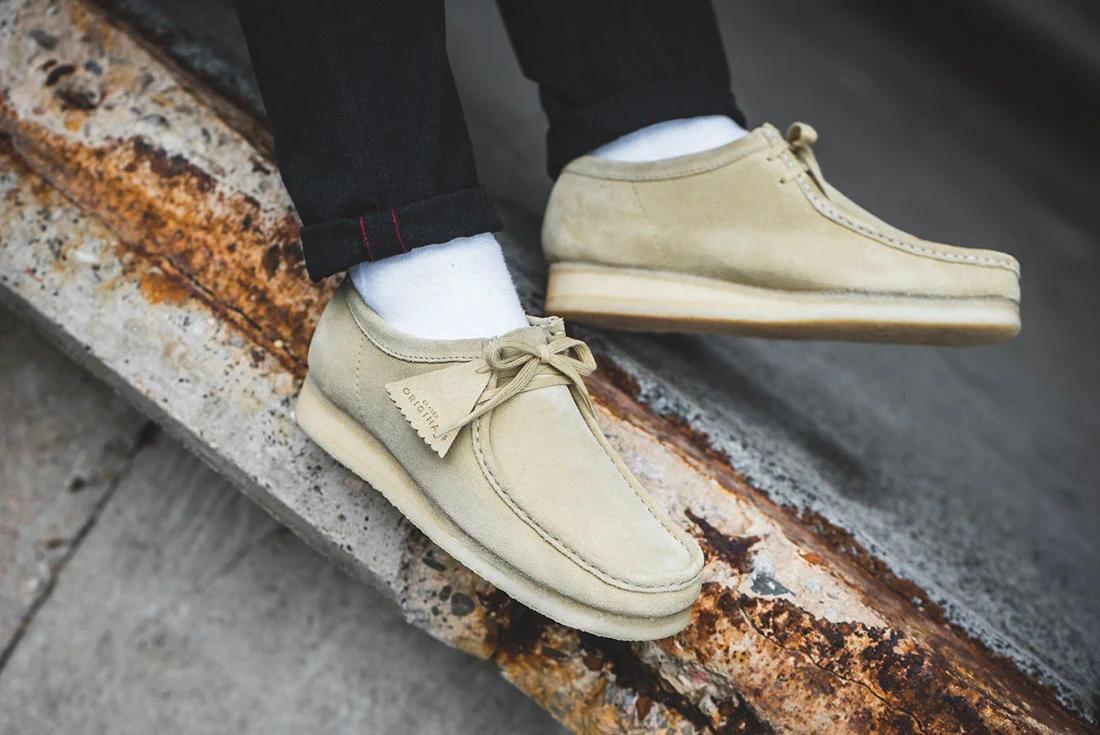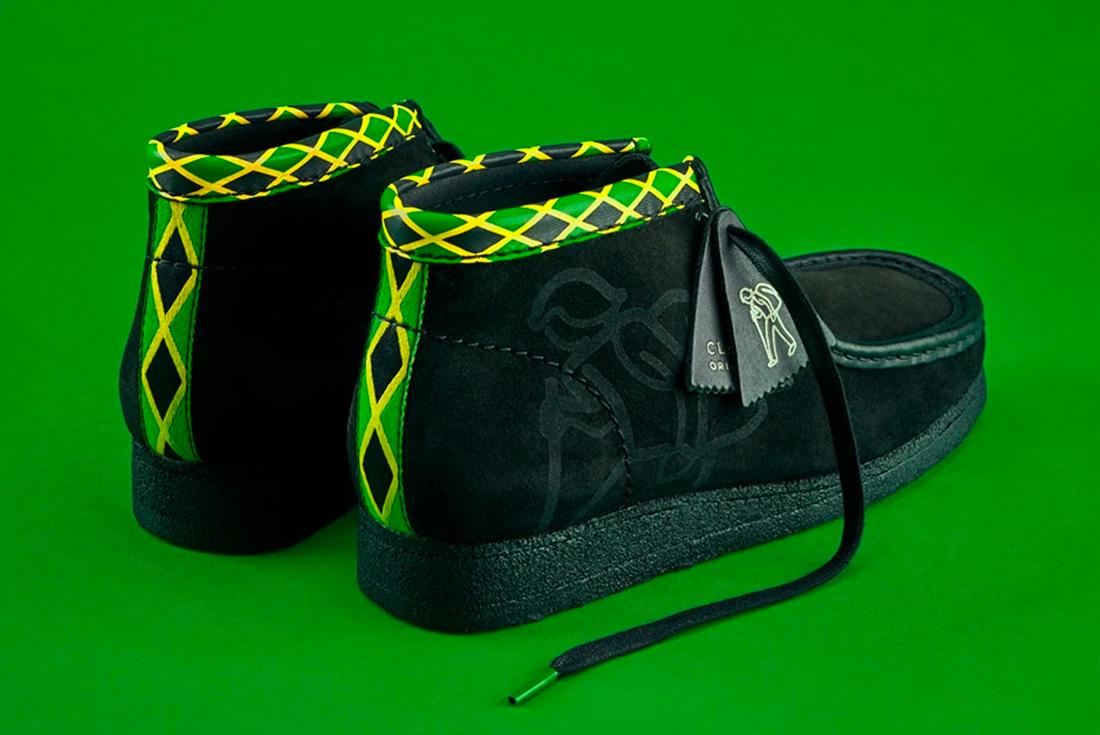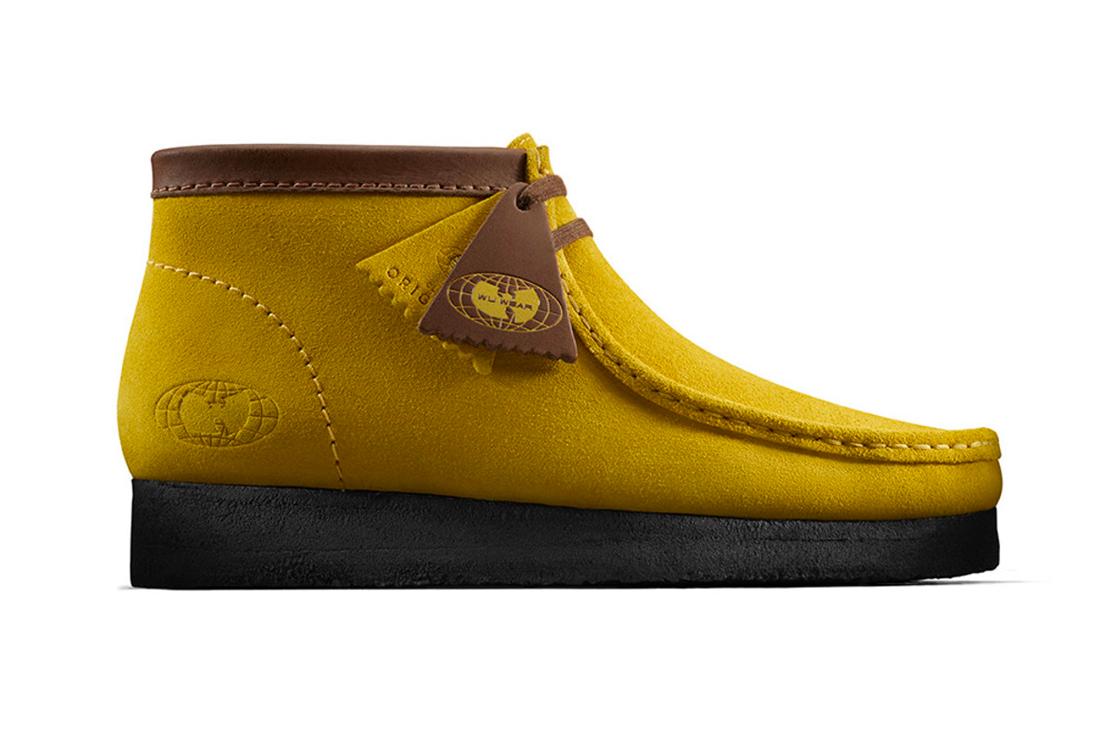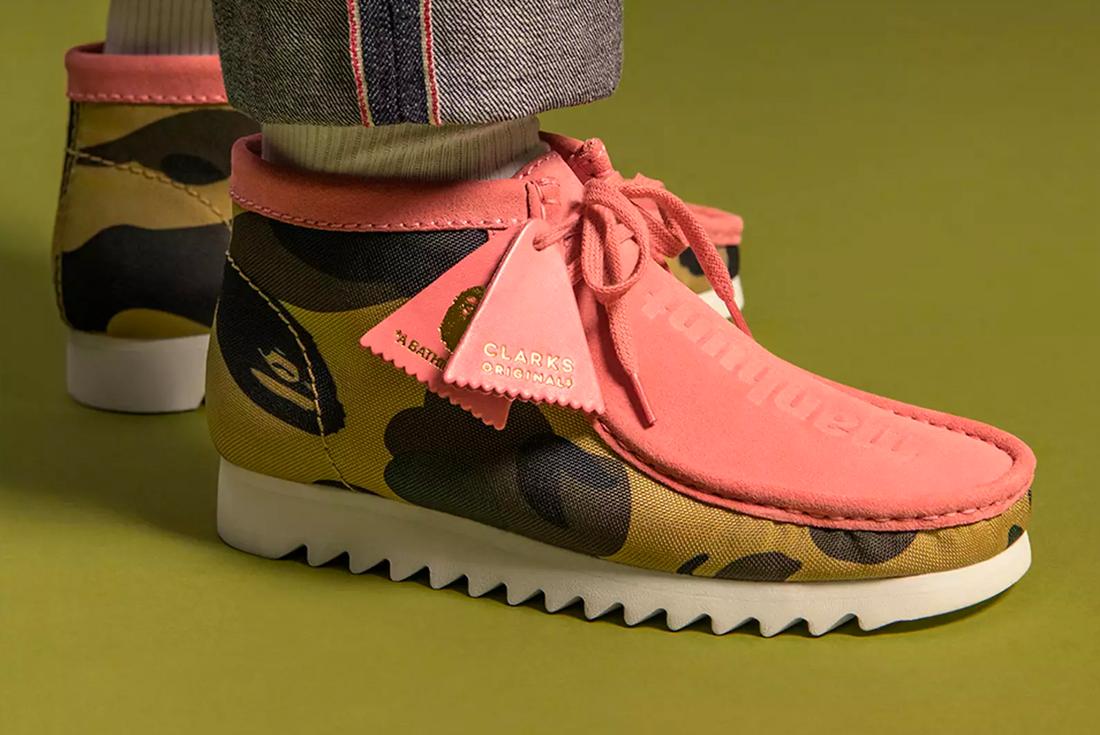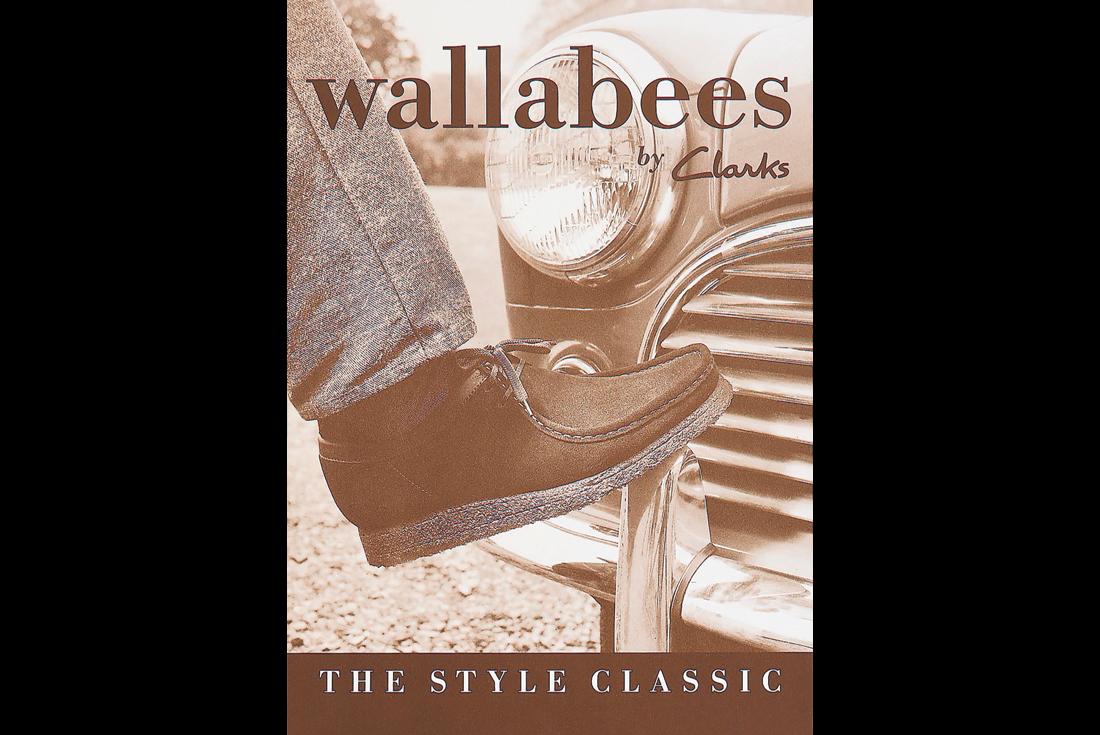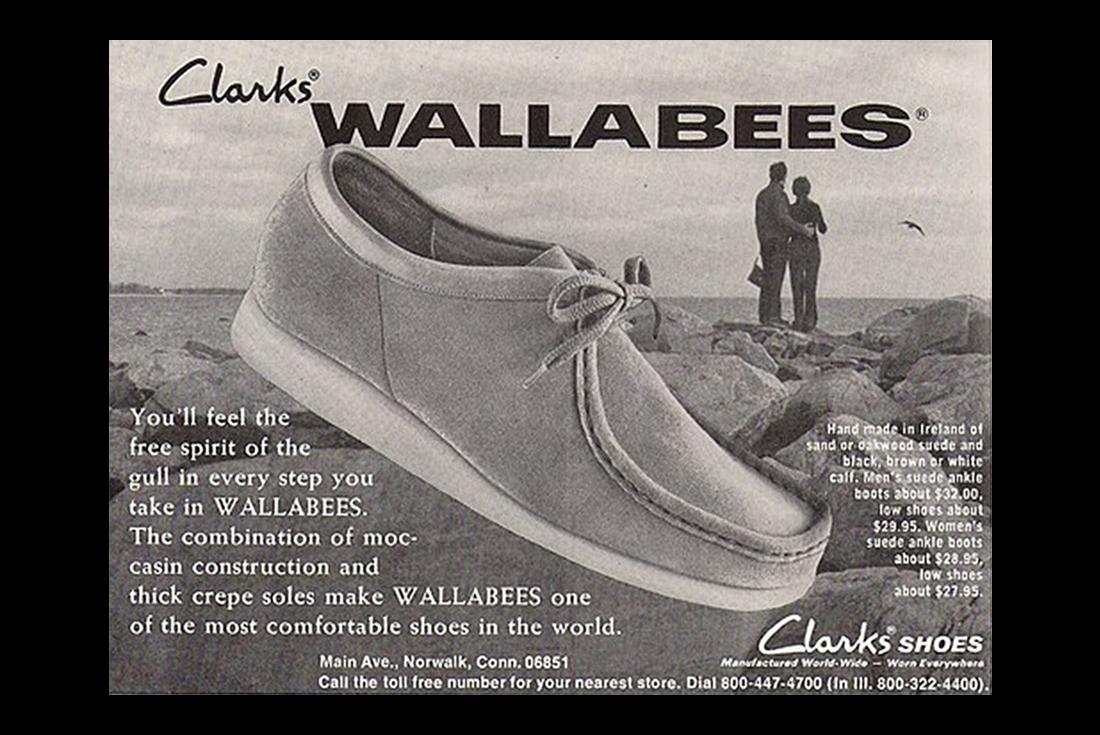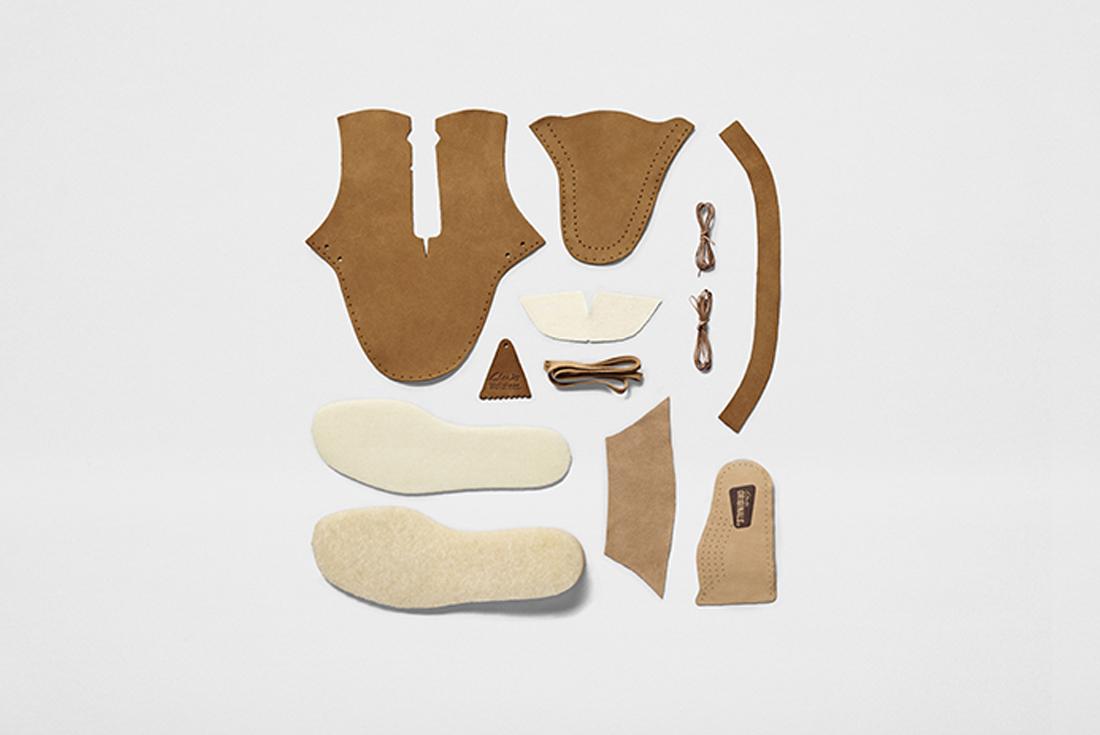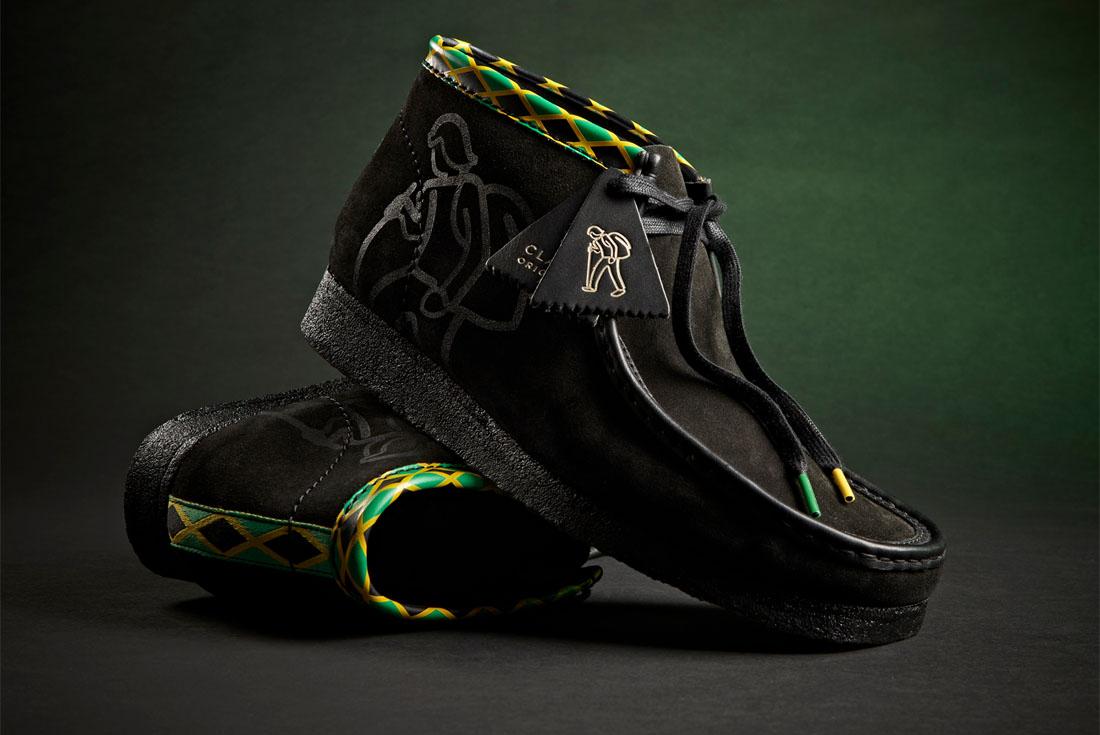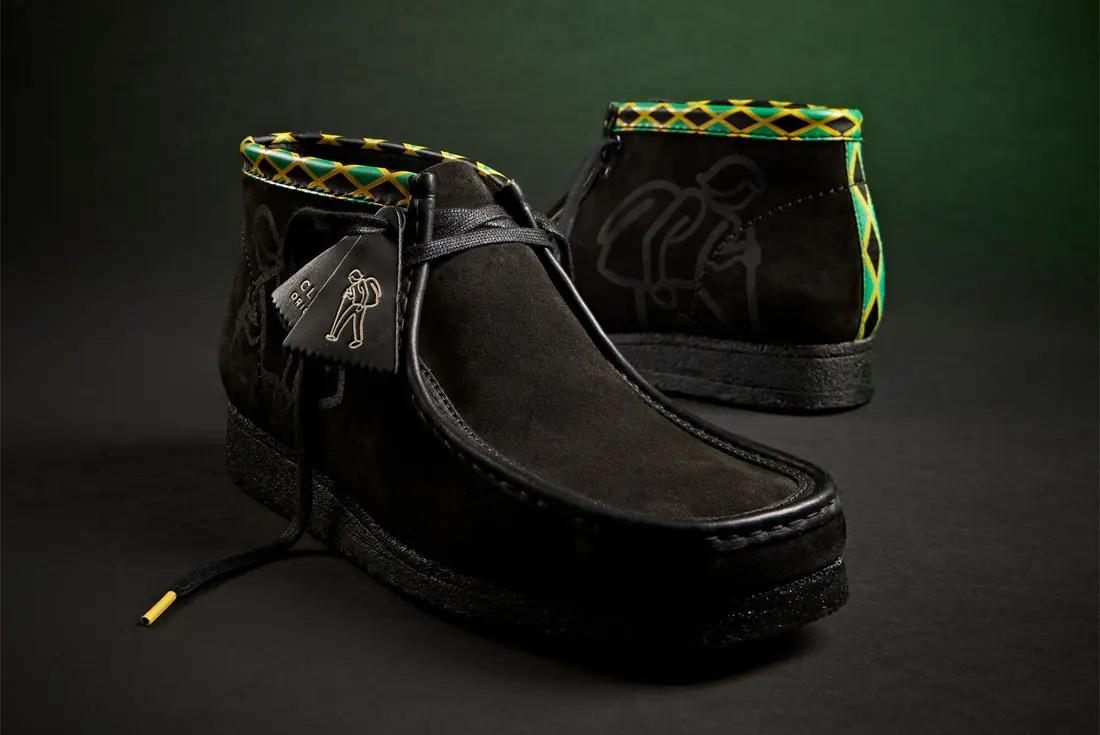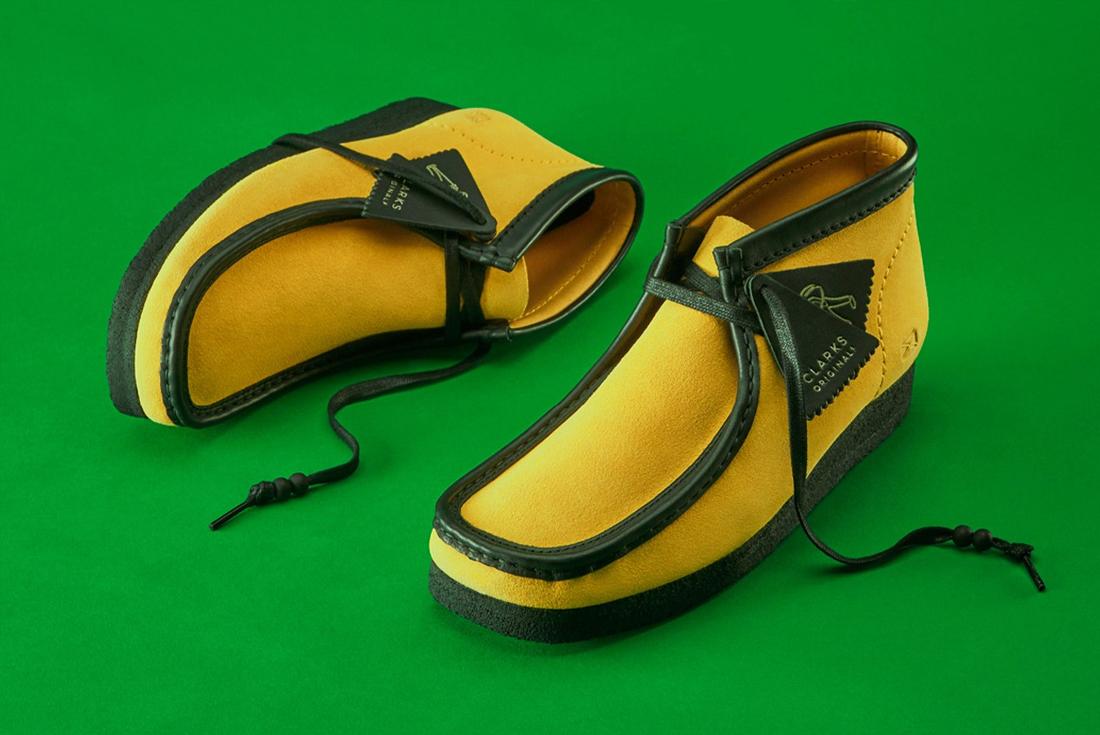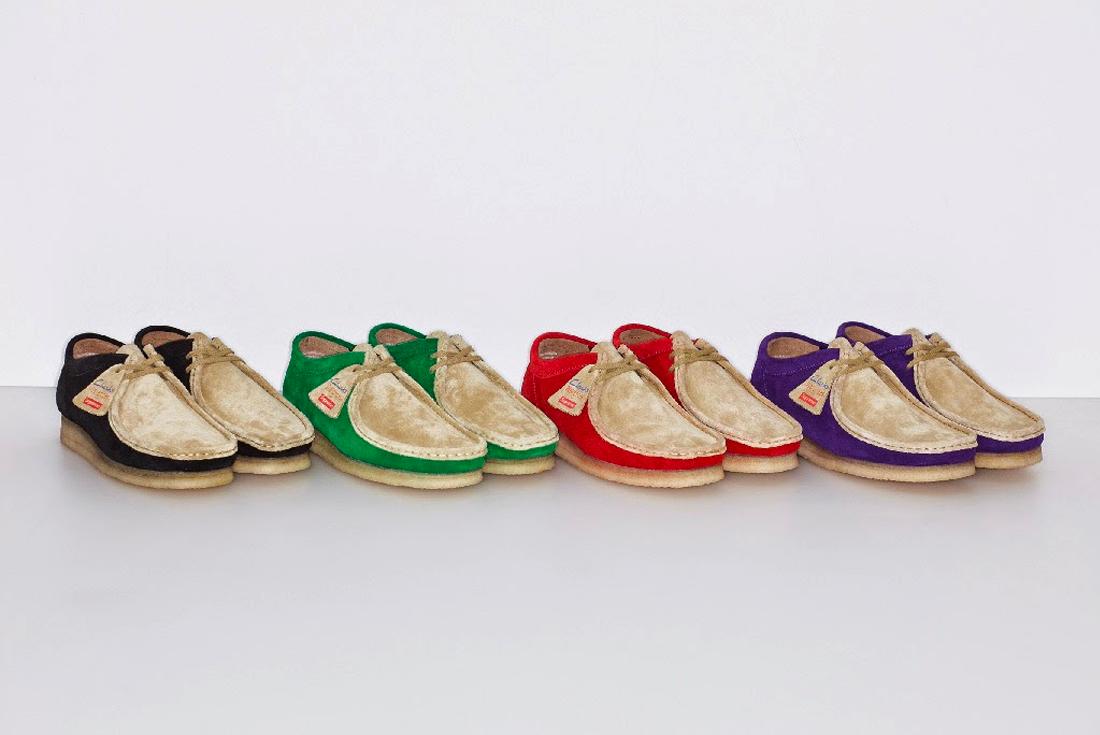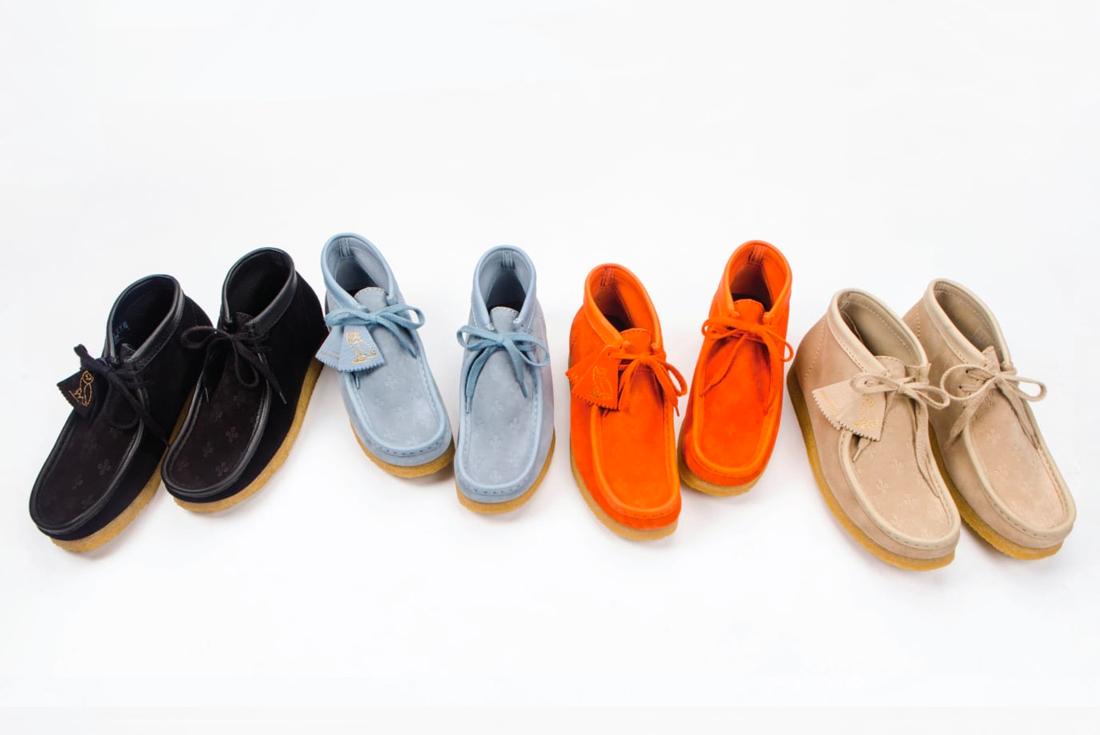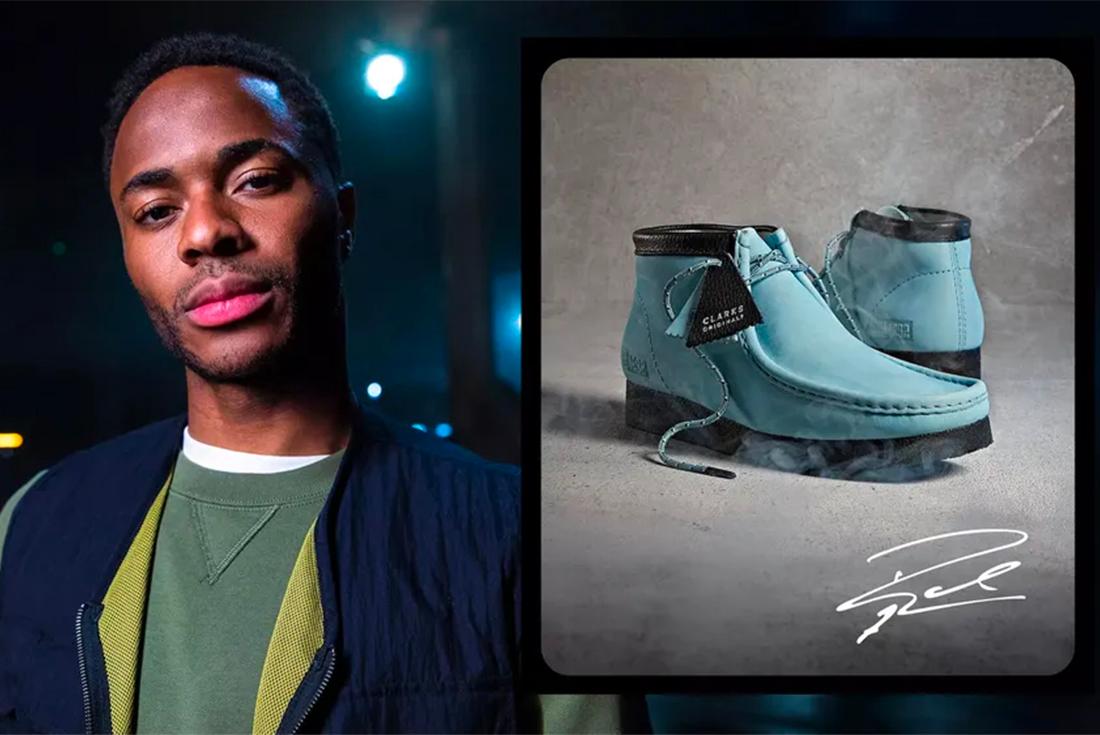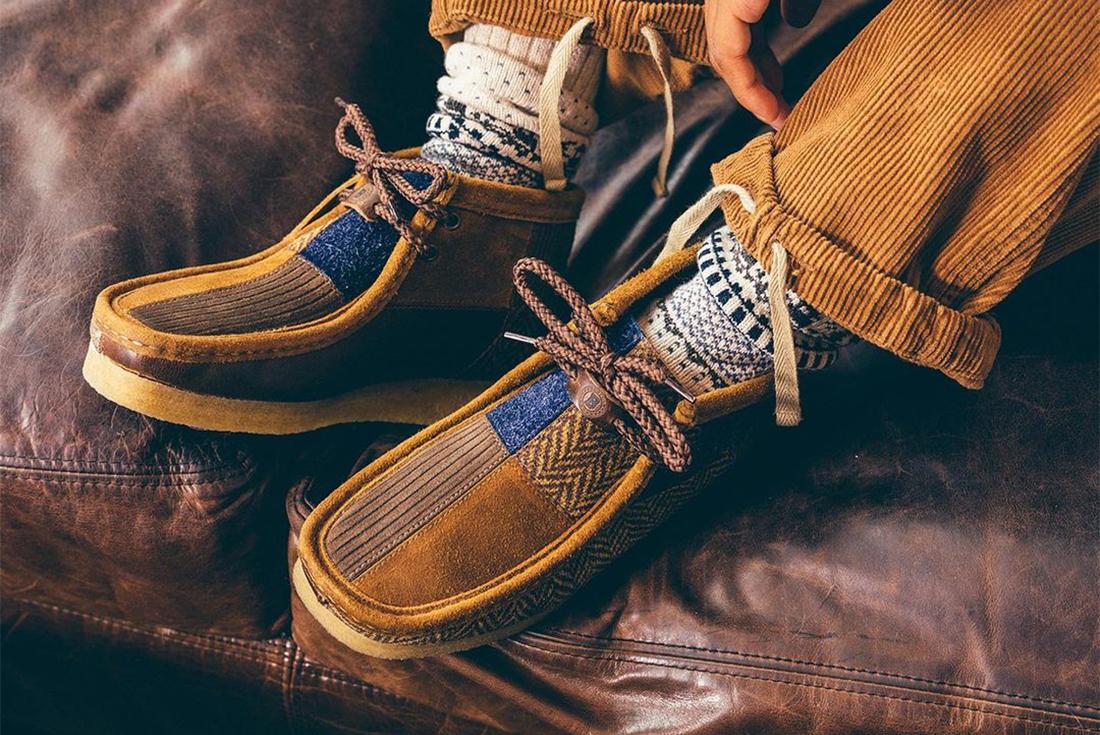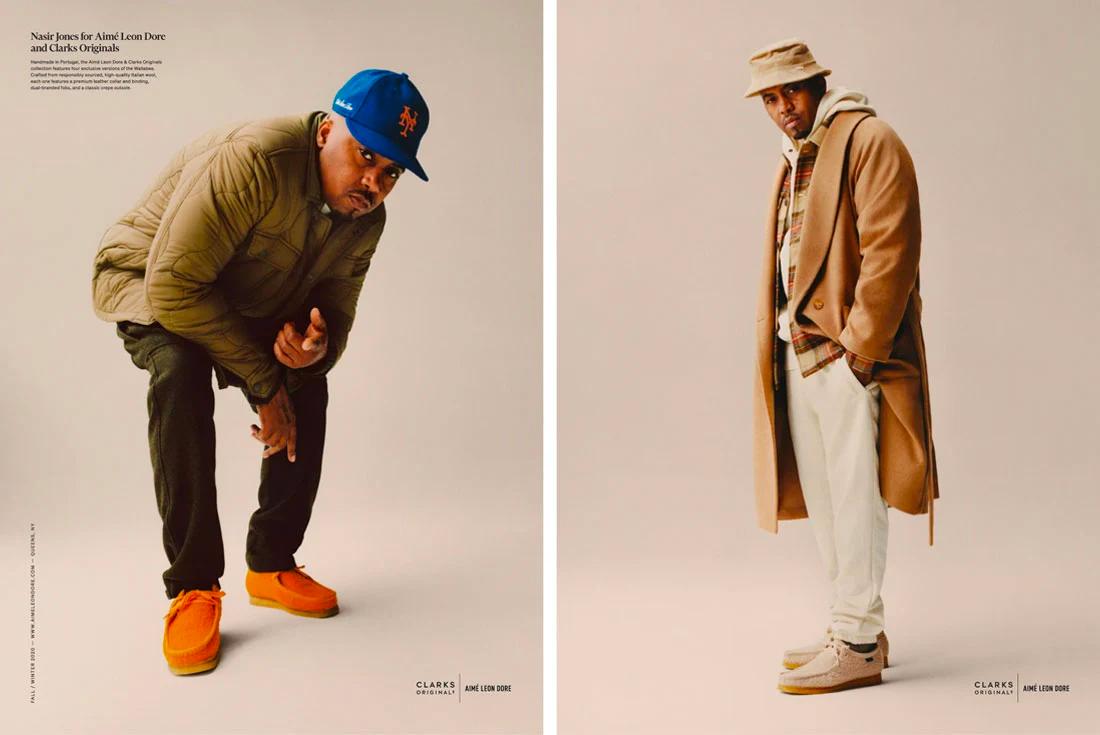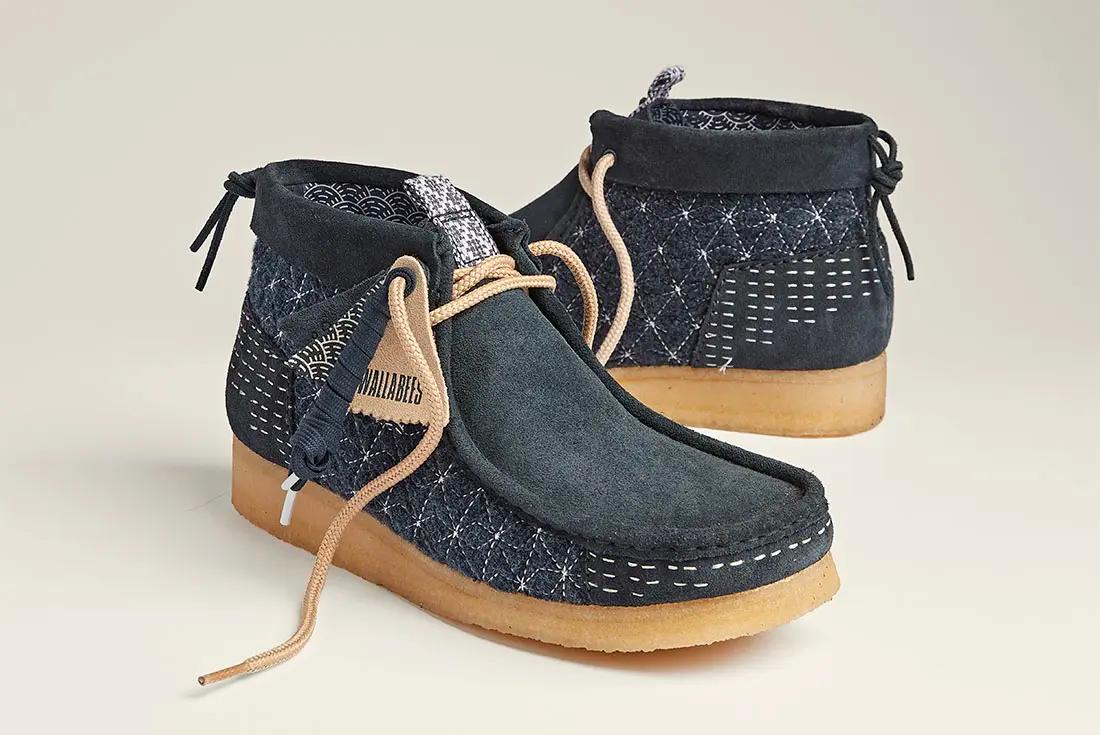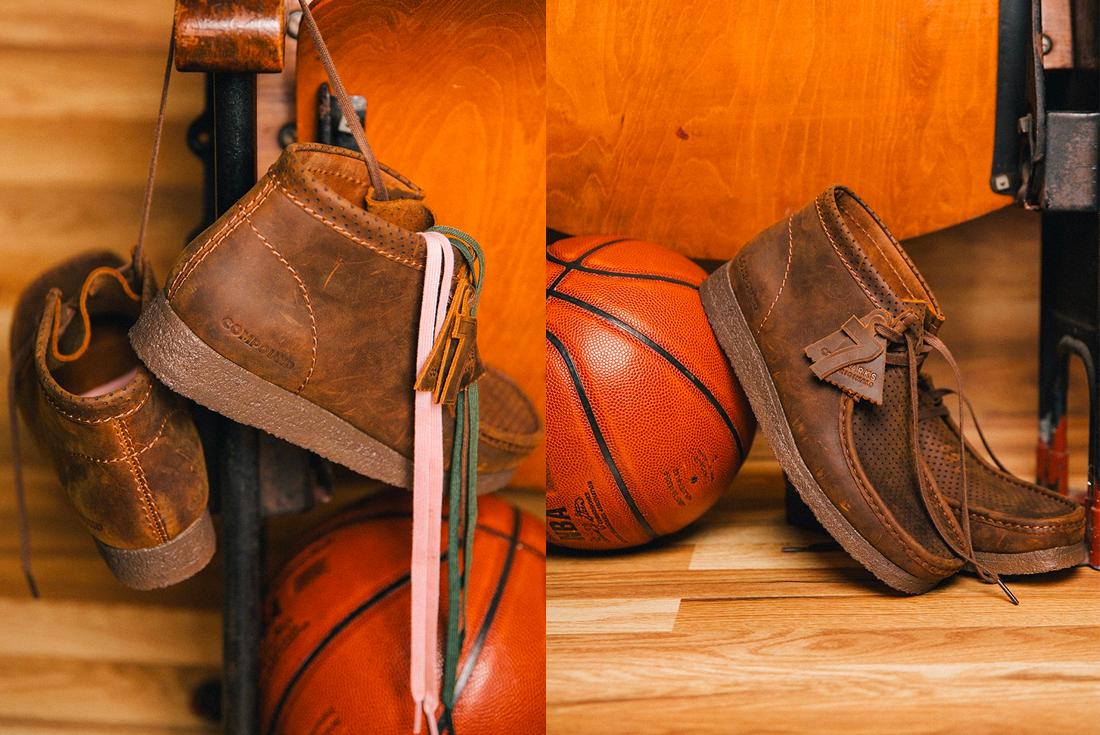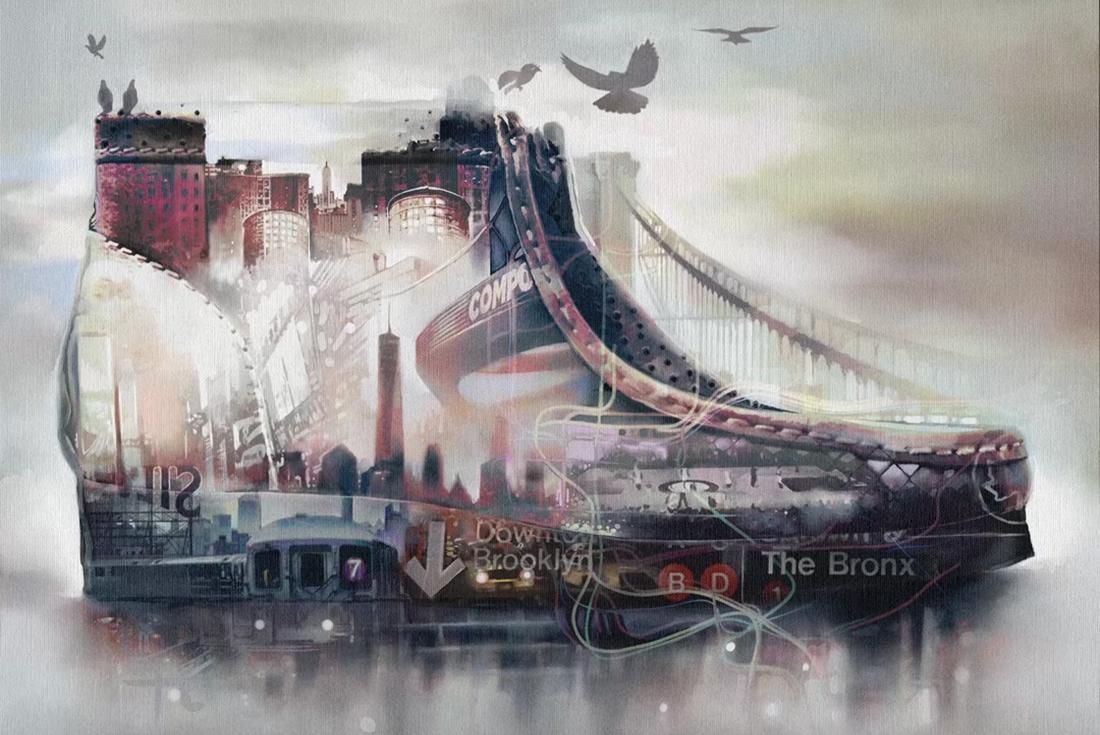A TimelineFrom Dancehall to Hip Hop: A Sonic History of the Clarks Originals Wallabee
Few shoes can rival the soaring global passport of the Born in Killarney, Ireland, the Wallabee has been laced by Jamaican dancehall DJs, waxed lyrical by New York’s hip hop godfathers, and stomped inside the sticky, acid-house clubs of Manchester.
Brace yourself: this is the thumping sonic history of the Clarks Wallabee – a model inextricably tied to the story of beat-making.
A Star Is Born
The Clarks Wallabee was born in 1967. Originally inspired by a German moccasin known as ‘The Grasshopper’, Clarks acquired a licence to manufacture their own version, which became the legendary silhouette known today.
Manufactured with ultra-tasty-looking, cheese-like soles and idiosyncratic suede uppers, the Wallabee became a footwear wunderkind shortly after its inception. Beautifully bound with moccasin-stitched, rolled-edge vamps, the silhouette is still undoubtedly one of the most recognisable designs in the footwear industry.
Offering supreme comfort thanks to the naturally squishy, full-length crepe soles, the model does a sterling job of distributing weight across its entire surface. Above the sole, the Wallabee is manufactured in both low or boot-cut heights, making it roomy and forgiving enough for any type of foot.
Thankfully, it also hasn’t changed much since the 60s.
Despite occasional material overhauls, the silhouette has lost none of its inimitable shape or attitude over its half-a-century lifespan. Reborn in various guises, the Wallabee initially found a second home some 4500 miles across the North Atlantic Ocean in a city booming with Jamaican dancehall.
Sonic Boom – Turning up the Volume
Nobody loves Clarks Adopted by the rudeboys and rhapsodised by dancehall artists, classic models like the Wallabee became footwear with unassailable prestige in the island nation. Even a ban on foreign-made shoes throughout much of the 1970s couldn’t stop Clarks fever, with touring Jamaican musicians smuggling back piles of the revered shoes in their suitcases. Some even travelled to stores in the small village of Street in Somerset, where you could find ‘seconds’ (shoes with slight imperfections). For Clarks disciples, this was Mecca.
Back in the UK, British artists were also finding stylistic provocation in the Wallabee. In 1976, David Bowie and Iggy Pop hooked up for a tour to support the album Station to Station, with Bowie regularly lacing the model on and off the stage. Bowie also on the classic television show Soul Train, ‘the hippest trip in America’, delivering a landmark performance in the beloved Wallabee.
Whether in Kingston clubs or stadium tours across Europe and North America, artists were beginning to find sartorial relevance in the unique characteristics of the Wallabee, and the volume was only going to get louder throughout the next decade.
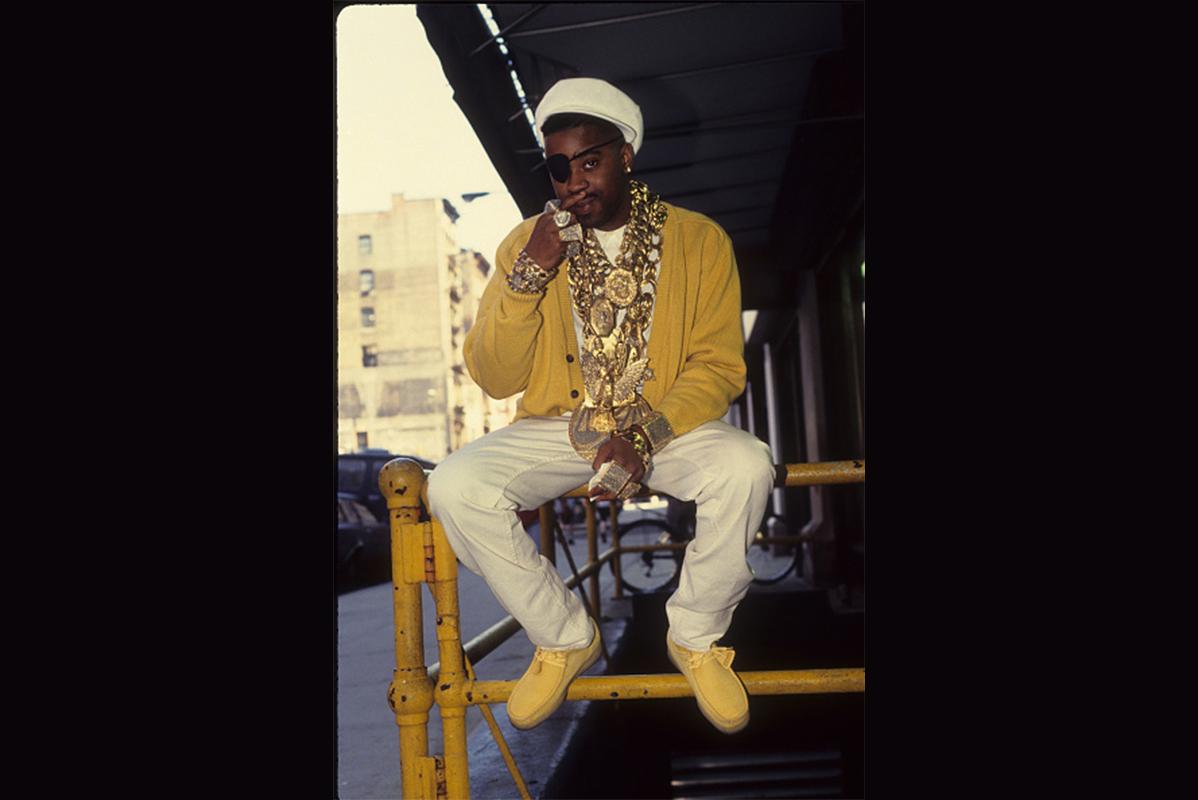
Pushing the Envelope: Hip Hop and Acid House
The globe-trotting Clarks Wallabee began to appear in New York City’s booming, beat-making boroughs during the 1980s, thanks largely to the steady flow of Jamaican migrants bringing their rudeboy style.
Laced by up-and-coming rappers like , and Slick Rick, the Wallabee helped establish hip hop’s style during its all-important formative years, and the model became an essential ingredient for the East Coast aesthetic.
With sneaker culture erupting in the 1980s, the Wallabee refused to get kicked to the curb, repeatedly rearing its head as a classy alternative. Immortalised by spitfire bars and the surging popularity of hip hop, the Wallabee was soon broadcast to the world.
It wasn’t just hip hop’s rising stars falling for crepe soles, either. Across the pond, Manchester’s legendary acid house scene (affectionately dubbed the ‘Second Summer of Love’) saw clusters of Wallabees stomp in abandoned warehouses, fields and immortal clubs like The Haçienda. Because you couldn’t wear trainers at the venues, the Wallabee became the obvious footwear of choice for bleary-eyed, nocturnal ravers, with the silhouette once again offering an appealing gateway between sneakers and more formal footwear.
Part of a subculture simmering from within Margaret Thatcher’s England, the Wallabee – like acid house – served as a canvas to express non-conformist attitudes. A notion that’s remained inextricably tied to the Clarks Wallabee.
Slick Rick, 1991. Image credit: Al Pereira/Getty Images/Michael Ochs Archives
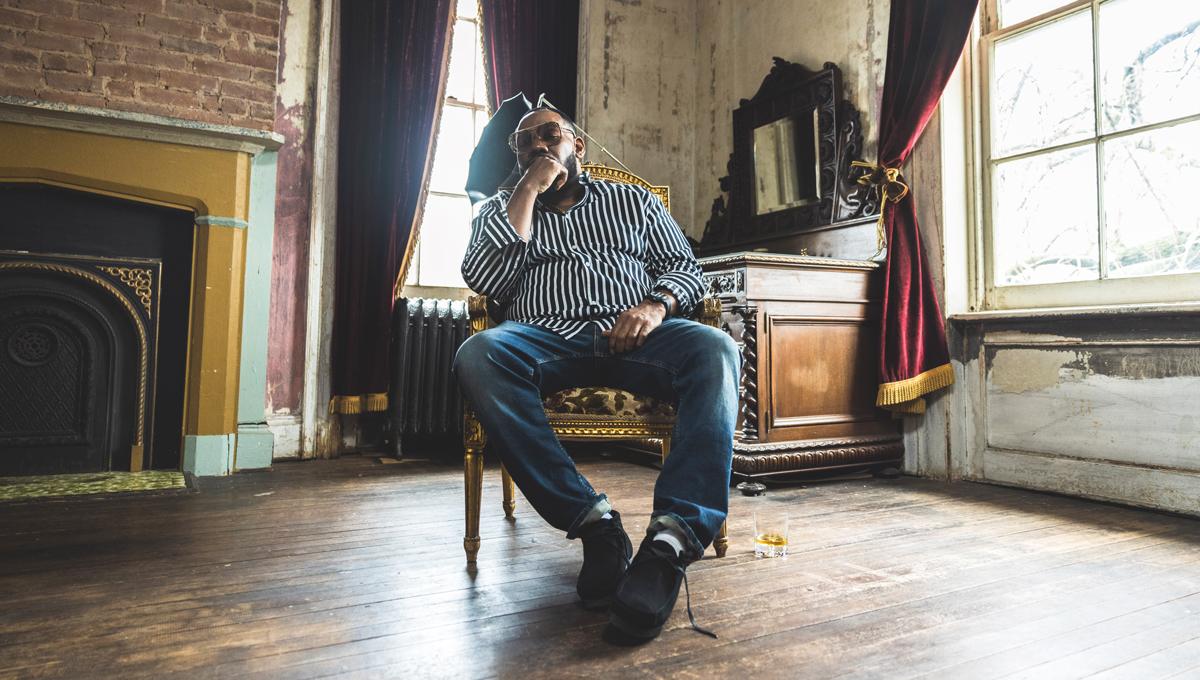
‘Wu-Tang Gotta Be the Best Thing Since Starks and Clark Wallabees’
The 1990s was another seismic decade for the Wallabee. In 1996, Ghostface Killah – the self-anointed ‘Wallabee Champ’ – released his classic debut album, Ironman. The LP cover art was replete with gaudy, colourful Wallabees that Ghostface dyed in preparation for the shoot. The album cover art now belongs to the aesthetic annals of East Coast rap, and it helped compose a hip-hop vernacular where the Wallabees stood front and centre.
Dedicating entire songs and even compilation LPs to his much-flaunted moniker, Ghostface became the poster boy for an entire hip hop movement consumed with Wallabee-mania. The , of course, stunted the Wallabee, while rap royalty Slick Rick, , Notorious BIG and would all jump on the rollicking bandwagon throughout the 1990s and early 2000s.
Clarks would even pay homage to the model’s deep New York City roots, with MF Doom receiving his own pair of custom New York Knicks-inspired Wallabees in the mid-90s.
In the UK, the Brits were again finding their own way of lauding their Somerset silhouette. With Britpop taking over the airwaves via the likes of Blur and Oasis, it was the lesser-known The Verve who really shined a light on the Clarks model.
Inspired by their love of psychedelic rock and Clarks, The Verve built on the legacy of their sartorial godfathers – the mods. The Wallabee graced the cover of their chart-topping Urban Hymns before appearing in the iconic music video for ‘Bitter Sweet Symphony’.
Raekwon, New York 2022. Image credit: Clarks
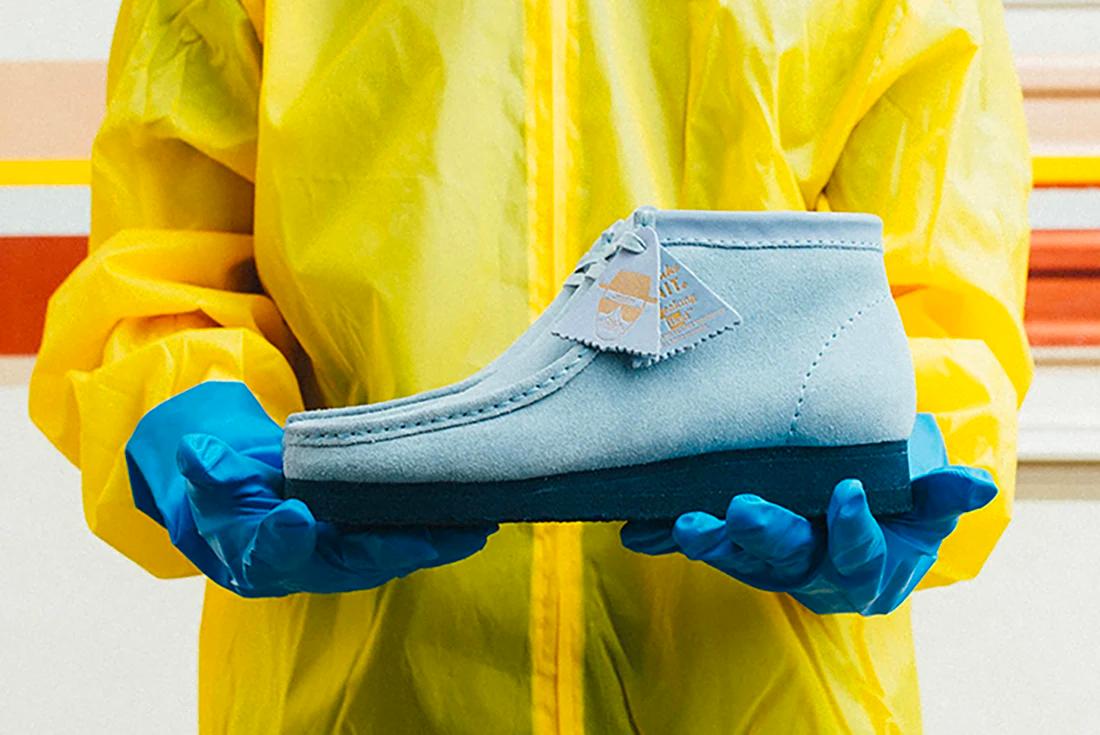
The Wallabee Breaks Bad
Clarks’ partnership with in the 2000s kickstarted a blinding golden period for the Somerset label and their collaborative endeavours. Tapping a stalwart of the New York City graffiti scene, Futura produced a duo of Wallabees in the 2000s, and his colourful, paint-splattered sophomore iteration was no doubt the favourite among Wallabee aficionados.
The 2000s also saw the Wallabee ride shotgun with Walter White during his notorious rise to power in AMC’s Breaking Bad, becoming his footwear of choice despite the transformation from Mickey Mouse to Scarface. Later, paid homage to the legendary series by linking up with AMC for two unique Wallabee iterations – one referencing Heisenberg’s empire and the other inspired by the series’ bloody climax.
Let’s also not forget the rollicking, lumberjack-ready collaboration that landed right before the close of the decade in 2009!
Rediscovering Roots
Collaborations were de rigueur for the footwear industry during the 2010s, and the Clarks Wallabee was enthusiastically stamping its global passport. Headlined by their duo of epic collaborations in 2014, Clarks once again paid homage to East Coast hip hop with their link-up one year later.
Clarks continued to turn up the volume on the Wallabee’s flawless hip hop credentials throughout the decade – a watershed moment no doubt involving an official partnership with Wu-Tang’s Wu Wear to commemorate the 25th anniversary of 36 Chambers.
Still, it wasn’t just East Coast rappers lining up to remaster the Wallabee. Canadian rapper and his OVO imprint sent Wallabee production to Italy with four handmade renditions, and the 6 God showed the kind of sophistication we’d love to see courtside!
For a rundown on some of our favourite Clarks Originals collaborations, head .
Nobody Can Stop the Music: The Future Is Burning Bright
Clarks didn’t take their foot off the accelerator upon entering the 2020s.
In fact, collaboration with Clarks in 2020 highlighted the shoe’s already stunning impact across the globe. Reflecting the growing popularity of the Wallabee in the fashion-centric districts of Harajuku and Shibuya, the model started the 2020s with a chest-thumping bang from the Ape. Showcased with a lookbook featuring England and Chelsea footballer Raheem Sterling (Clarks’ very first brand ambassador), the collaboration featured BAPE’s signature camouflage print – although this partnership did everything but blend in.
Later the same year, even rap royalty and Queens native made an appearance for . And the quintessential NYC label knocked it out of the ballpark with four Wallabees manufactured using textured Casentino wool.
As well as stamping its real-world credentials, the Wallabee has also permeated the world of NFTs, linking up with Compound for a ‘Floor Seats’ collaboration (which features both a real shoe and an NFT component).
Inspired by a courtside NYC basketball experience and the Wallabee, Compound tapped BK the Artist (who recently developed Jadakiss’ last solo album artwork) to design a limited-run, animated NFT channelling 90s hip hop.
Does the Wallabee’s thumping sonic history strike a chord?
Hit the button below to shop all the latest Wallabees from .
